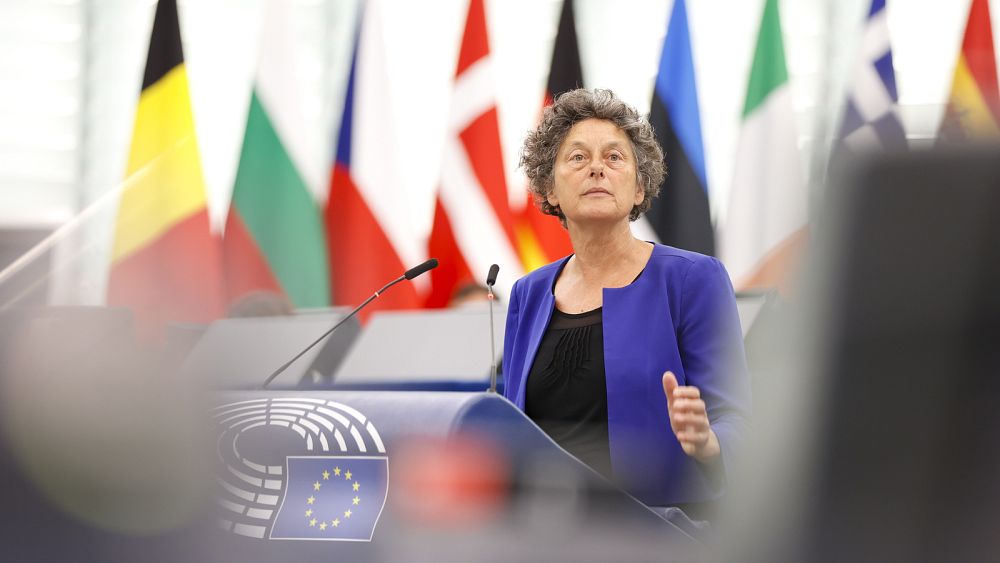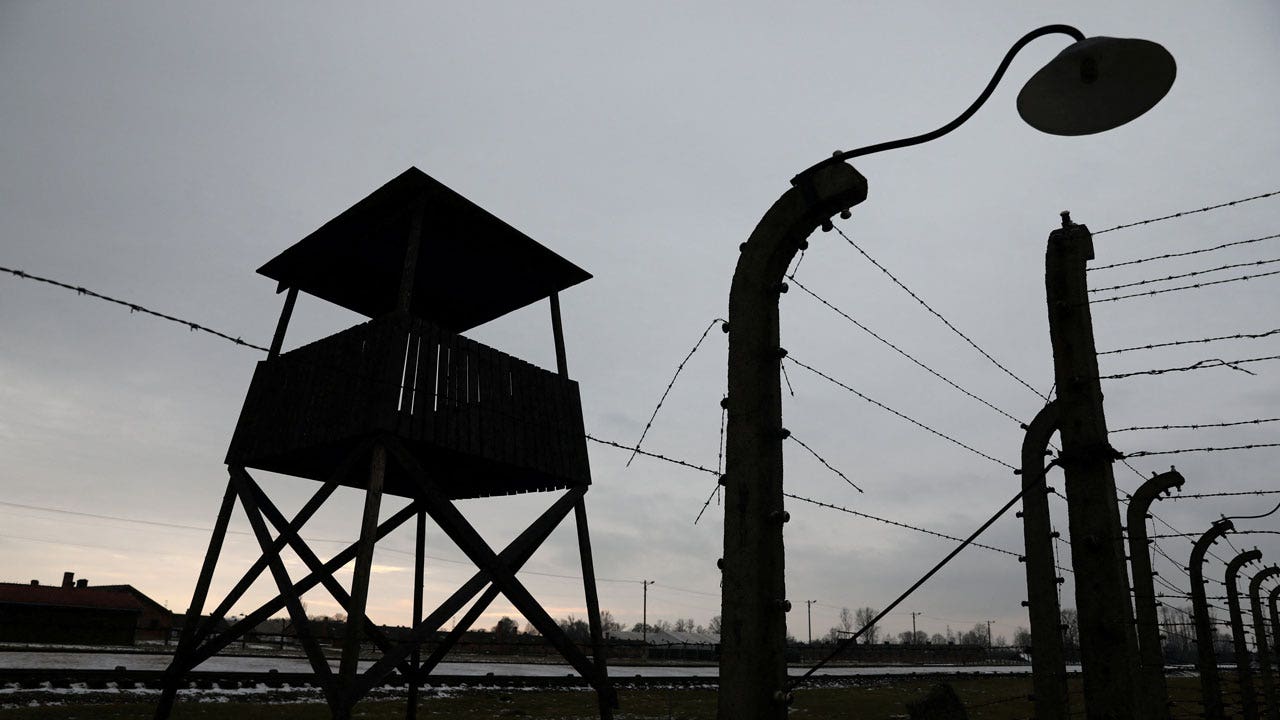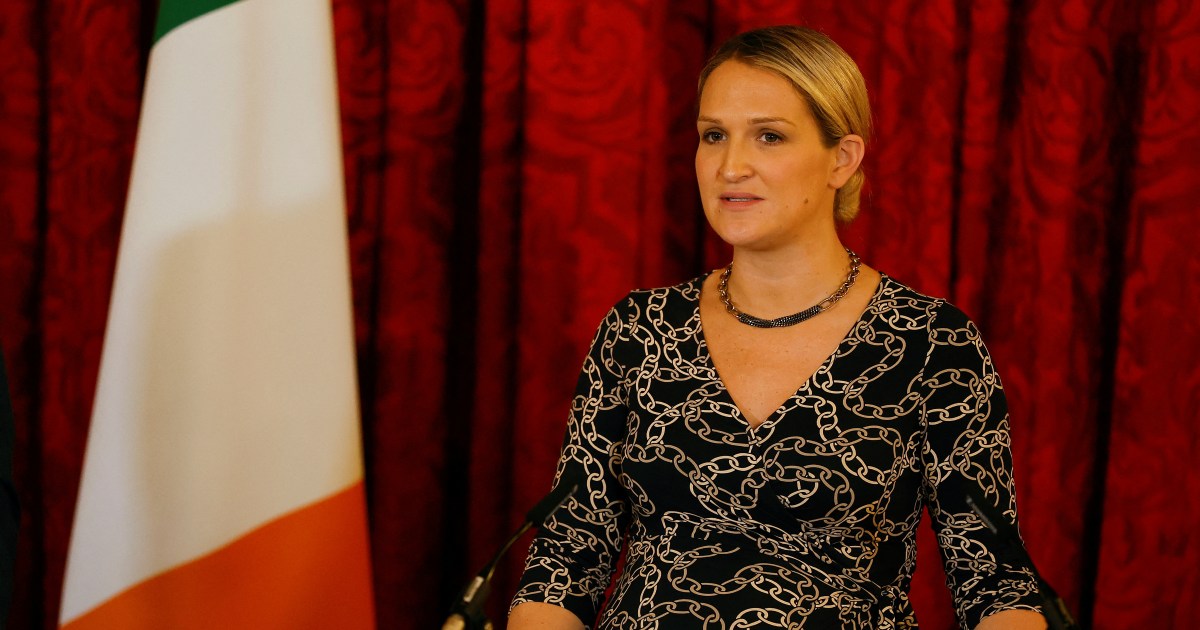World
EU lawmakers clash over controversial Tunisia migration deal

Members of the European Parliament (MEPs) clashed on Tuesday over the EU’s controversial migration agreement with Tunisia.
In a heated debate during a plenary session in Strasbourg, MEPs from across the political spectrum claimed the number of migrants entering Europe from the North African country had increased since the agreement was signed in July.
“The deal has only led to more repression, more deaths, and even more migration,” Tineke Strik of the Greens group said.
“Two months after the signing ceremony, we don’t see much implementation,” Jeroen Lenaers of the centre-right European People’s Party (EPP) added. “Arrivals continue to increase, and on the ground in Tunisia we see little development.”
The contentious agreement includes €105 million in EU aid to stem irregular migration by clamping down on smuggling operations and strengthening border management. It also includes around €600 million in budgetary support and strategic investments in Tunisia’s economy.
Manfred Weber, the leader of the EPP, claimed earlier on Tuesday that an uptick in migration numbers immediately after the signing of the agreement was expected before numbers eventually come down.
EU home affairs chief Ylva Johansson said in July that 45,000 asylum seekers had left Tunisia for Europe this year, a huge increase compared to previous years. Of those, around 5,000 were estimated to be of Tunisian origin, in a sign the country has become an increasingly popular country of transit for migrants and refugees.
Human rights at risk
EU lawmakers blasted the European Commission for failing to recognise mounting evidence of Tunisian authorities’ abusive treatment of sub-Saharan migrants, including illegal pushbacks, racial hatred and human rights violations.
In early August, 27 migrants were found dead in Libyan territory near the Tunisian border, days after Interior Minister Kamel Fekih admitted small groups of migrants were being pushed back into the desert region bordering Libya and Algeria.
“We all remember the image of the dead body of a mother and her daughter in the desert, paid for by European money,” Sophie in ‘t Veld of Renew Europe said.
“This is worrying because it’s one of many useless attempts to externalise control of European borders with big risks for human rights,” Brando Benifei of the Socialists and Democrats group said.
“This EU that does this, it’s a lost EU. It’s a decadent EU. It’s an EU that does not stand up for democracy and human rights,” Malin Björk of The Left added.
This is not the first time MEPs have scathingly criticised the EU for cosying up to Tunisia’s President Kaïs Saïed, who has previously embraced far-right conspiracies that migrants are plotting to change the country’s demographic make-up.
“Tomorrow at this very spot. President von der Leyen will claim in strong words that she fiercely defends democracy against autocracy,” Strik of the Greens group said, “but at the same time, she proudly presents dirty deals with a ruthless dictator.”
Europe ‘sleepwalking’ into a migration crisis
Other MEPs defended the European Commission’s agreement as essential to support the EU’s border management in the face of high migration levels.
“We need external cooperation. The EU Tunisia Agreement is essential in order to retain strict control of the EU borders, for our own security and for humanitarian reasons,” Sara Skyttedal of the EPP said.
“We need to work decisively long term and on all fronts. We need to get sustainable and common migration policy in place, and we need to deepen cooperation with countries such as Tunisia. Together, we can make a difference and save lives that are tragically lost at sea due to hypocritical migration policy,” she added.
Migration is set to be a key issue in the 2024 European elections, as well as in upcoming national elections in Poland and the Netherlands.
The EU has said it wants the Tunisia migration deal to become a blueprint for similar agreements with other North African countries.

World
Emily Blunt Says She’s ‘Absolutely’ Wanted to Throw Up After Kissing Certain Actors During Filming: ‘I’ve Definitely Not Enjoyed Some of It.”

Emily Blunt got candid during a recent appearance on “The Howard Stern Show” (via People) about how she’s had to fake chemistry over the years with certain co-stars she just struggled to connect with on set. Blunt has acted opposite many high-profile leading men throughout her career, from Matt Damon (“The Adjustment Bureau”) to Tom Cruise (“Edge of Tomorrow”), Dwayne Johnson (“Jungle Cruise”), Ryan Gosling (“The Fall Guy”) and Cillian Murphy (“Oppenheimer”).
“Have you wanted to throw up?” Stern asked Blunt about kissing some of her male co-stars during filming. The Oscar-nominated actor responded: “Absolutely. Absolutely.”
“I wouldn’t say it’s sort of extreme loathing, but I’ve definitely not enjoyed some of it,” Blunt added.
Blunt declined to name any co-star she couldn’t generate chemistry with, but she did say: “I have had chemistry with people who… I have not had a good time working with them.”
“Sometimes it’s a strange thing. Sometimes you could have a rapport that’s really effortless, but it doesn’t translate onscreen,” Blunt continued. “Chemistry is this strange thing. It’s an ethereal thing that you can’t really bottle up and buy or sell. It’s like there or it’s not…It’s just easier when you have a natural rapport with someone.”
Blunt has been acting for so long that at this point she has a formula down for how to build chemistry, saying: “I’ve got to find something I love about everybody. I have to find something … Even if it’s one thing.”
“It might be that they have a nice laugh or I like how they speak to people. They’re polite. I mean, it might be something random,” Blunt explained. “But find something you love about that person or something you love about them as the character and then kind of lean into that.”
Blunt earned an Oscar nomination earlier this year for her supporting role in Christopher Nolan’s “Oppenheimer,” which took home the Academy Award for best picture. She’s currently on the big screen in Universal Pictures’ action romance “The Fall Guy,” co-starring Ryan Gosling.
World
Holocaust survivors visit Auschwitz for annual March of the Living, reflect on Oct. 7 attacks

Several thousand Jews, including Holocaust survivors personally affected by the Oct. 7 Hamas attacks on Israel, walked through the former Auschwitz Nazi German death camp on Monday for the annual March of the Living ceremony in Poland.
Walking along the 1.8 mile path towards the crematoria of Birkenau, they paid tribute to the millions of Jews murdered by the Nazis during World War Two.
This year’s ceremony was overshadowed by the events last year when 1,200 people were killed in a Hamas-led rampage through Israeli towns and 253 hostages were taken, according to Israeli tallies.
HOLOCAUST SURVIVORS CONFRONT RISING DENIAL, ANTISEMITISM IN NEW DIGITAL CAMPAIGN
Daniel Louz, a 90-year-old whose hometown Kibbutz Beeri lost a tenth of its residents to the Palestinian attackers, came to the Auschwitz camp on Monday for the first time since his mother’s family was killed there in 1942.
A wooden guard tower stands at the site of former Nazi German concentration and extermination camp Auschwitz II-Birkenau during ceremonies marking the 77th anniversary of the liberation of the camp and International Holocaust Victims Remembrance Day, in Brzezinka near Oswiecim, Poland, on January 27, 2022. (Jakub Porzycki/Agencja Wyborcza.pl via Reuters/File Photo)
“I am convinced that on October 7 in Beeri the good souls (of the Holocaust dead) protected me and did not let the Hamas criminals shoot at our home,” Louz told Reuters. “So that I might be able to tell the story. I am really thankful to you all.”
More than 1.1 million people, mostly Jews, perished in gas chambers or from starvation, cold and disease at Auschwitz, which Germans set up in occupied Poland during World War Two.
More than three million of Poland’s 3.2 million Jews were murdered by the Nazis, accounting for about half of the Jews killed in the Holocaust.
“Prior to October 7 it is my belief … that the worst event in human history happened on these grounds. That this place, the very word Auschwitz, speaks volumes in one word about fear, death, destruction, annihilation,” Phyllis Greenberg Heideman, President of the International March of the Living, said during Monday’s event.
“And then came October 7, and perhaps we have to come as a people to the realization that perhaps in some ways the Shoah (Holocaust) isn’t over for us. It’s not a competition, certainly not a comparison, it’s a continuum.”
World
Tech compliance reports, Newsletter

This week’s key events presented by senior tech and industry reporter Cynthia Kroet
Key diary dates
Monday 6- Wednesday 8 May: High-Level Conference on Antimicrobial Resistance (AMR) organised by the Belgian presidency of the Council of the EU.
Monday 6 May: Deadline for online platforms regulated under the Digital Services Act to submit transparency reports.
Tuesday 7 May: NGO Seas at Risk to publish report on under-sea mining.
In spotlight
EU platform rules return to the spotlight this week, since today (6 May) is the deadline for the largest online platforms – those with more than 45 million users per month – to hand in their transparency reports under the Digital Services Act (DSA).
It’s the second batch of reports after the stringent rules started applying to the likes of Facebook, Amazon and TikTok last August.
With the submission of the first reports in October, platforms were scrutinised over the low number of content moderators they had in some of the smaller EU member states. Facebook has a single employee looking at Maltese content, and three in Estonia, claiming that much of the process is automated. In comparison, TikTok, which has fewer users per month, has six people looking at Estonian content and none for Maltese.
In light of the latest DSA probes started by the European Commission last week: into Facebook’s and Instagram’s handling of disinformation and ability to stop Russian fake news, all eyes will be on platforms’ election preparedness. And it remains to be seen if the social media platforms have taken more action compared to half a year ago.
With just about a month to go to the European Parliament election, the Commission is trying to ramp up platform preparedness for the poll. Stress-tests last month (24 April) were designed to help mitigate risks that may impact the integrity of elections and their services, for example.
However, as the latest Facebook and Instagram probes show, the Commission largely counting on the willingness of mother company Meta to comply; since there is no deadline for when the probes might end.
Policy newsmakers
@Kergueno @Uspaskich
MEPs interests
MEPs collectively earn more than €8.6 million a year from outside jobs – including from private companies that also actively lobby on EU policy, according to a report published by Transparency International EU today (6 May). Topping the list is Lithuanian MEP Viktor Uspaskich, who declares €3,000,000 per year working for a company called Edvervita UAB. The group, including Raphaël Kergueno, senior policy officer at Transparency, has called for EU lawmakers to be banned from moonlighting, as figures show over two thirds of the 705 deputies disclose activities in addition to their core role.
Policy Poll
Should MEPs elected to the next European Parliament be permitted remuneration:
From MEP salary alone
From additional side jobs
Subscribe here to see the results of last week’s poll and stay informed on the latest EU policy developments with our weekly newsletter, “The Policy Briefing”. Your weekly insight on European rulemaking, policy issues, key events, and data trends.
Data brief
-

 Politics1 week ago
Politics1 week agoColumbia University’s policy-making senate votes for resolution calling to investigate school’s leadership
-

 News1 week ago
News1 week agoBoth sides prepare as Florida's six-week abortion ban is set to take effect Wednesday
-

 Politics1 week ago
Politics1 week agoGOP Rep. Bill Posey won't seek re-election, endorses former Florida Senate President as replacement
-

 World1 week ago
World1 week agoBrussels, my love? MEPs check out of Strasbourg after 5 eventful years
-

 Politics1 week ago
Politics1 week agoHouse Republicans brace for spring legislative sprint with one less GOP vote
-

 World1 week ago
World1 week agoAt least four dead in US after dozens of tornadoes rip through Oklahoma
-

 World1 week ago
World1 week agoRussian forces gained partial control of Donetsk's Ocheretyne town
-

 Politics1 week ago
Politics1 week agoAnti-Trump DA's no-show at debate leaves challenger facing off against empty podium


















